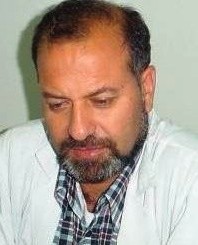by Dr Fiaz Fazili
Our identity as noble professionals demands moral values, behaviours, ethics, and relationships that underpin the trust the public places in doctors as care providers and healers.

In the eyes of society and their peers, doctors have long been revered as “noble professionals,” holding the utmost trust among the public. However, a shift has occurred, and the question arises: Why are doctors no longer perceived as noble?
Corruption within the medical profession is at the forefront of this dilemma, with far-reaching consequences such as compromised patient care, eroded trust in healthcare systems, and suboptimal health outcomes. This article delves into the causes and potential remedies for corruption in the medical field.
Reflecting on the core identity and purpose of medicine, one cannot ignore the crossroads it currently faces due to the encroachment of consumerism, commercialisation, and moral degradation. The term “healing” has suffered a blow, and the fear lingers that doctors are no longer the revered messiahs they once were. Medicine has historically been about more than financial gain; it embodies values such as integrity, compassion, altruism, continuous improvement, excellence, and empathy. The question arises: Have these principles been relegated to the background, and where do doctors draw the line in conflicts of interest?
Awareness of the intricate web between pharmaceutical companies, diagnostic centres, and corporate hospitals is growing. The pressure on doctors to prescribe unnecessary tests, interventions, and procedures for financial gain has become an unsettling reality. The disconcerting revelation of senior doctors engaging in unethical practices raises questions about the profession’s integrity. Instances of doctors short-changing patients, unnecessary surgeries, and inflated billing codes have surfaced, exposing the dark underbelly of healthcare practices.
Becoming a doctor is a dream, an aspiration cherished with enthusiasm and joy. Joining the medical profession is seen as an opportunity to connect with humanity, understand pain and suffering, and contribute positively. However, the erosion of the noble image of doctors raises concerns about the commercial forces that have infiltrated medicine, diluting its moral foundations.
The identity of doctors as noble professionals rests on a foundation of morals, values, behaviours, ethics, and relationships. However, commercial forces have gradually encroached, challenging the ethical fabric that underpins the trust placed in doctors as healers. In regions with insufficient regulatory oversight, unethical behaviour can go unchecked. Low salaries, inadequate reimbursement, and a lack of emphasis on ethics during medical training may drive some healthcare professionals to engage in corrupt practices.
Reclaiming the nobility of healthcare in a commercialised era is a collective responsibility. Addressing corruption requires a commitment to upholding the values that define the medical profession. The influence of commercial forces must be countered, emphasising ethics, professionalism, and patient-centred care. Only through a united effort can the medical profession regain its noble stature and fulfil its fundamental purpose of healing and caring for humanity.
Remedies:
Strengthen Regulation: Implement and rigorously enforce regulations and oversight mechanisms to hold medical practitioners accountable for unethical conduct. This includes regular inspections and investigations.
Fair Compensation: Ensure that healthcare professionals receive fair and competitive salaries, reducing the financial incentive for corruption.
Ethics Training: Integrate ethics and professionalism education into medical school curricula and provide ongoing training to practising healthcare professionals.
Transparency and Accountability: Promote transparency in healthcare transactions, such as drug procurement and hospital administration, to reduce opportunities for corruption. Encourage the reporting of corrupt practices and protect whistleblowers.
Reducing Pharmaceutical Influence: Implement policies and guidelines to limit the influence of pharmaceutical companies on medical practitioners. Encourage evidence-based prescribing and discourage unnecessary or biased use of medications and medical devices.
Strengthen Healthcare Systems: Invest in healthcare infrastructure, improve resource allocation, and reduce bureaucratic red tape in healthcare systems to minimize the need for corrupt practices.
Public Awareness and Advocacy: Engage the public in understanding the consequences of medical corruption and promote a culture of accountability. Encourage patients to ask questions and demand transparency in their healthcare.
Professional Associations and Peer Review: Medical associations can play a crucial role in setting ethical standards, conducting peer reviews, and holding members accountable for their actions.
Whistleblower Protection: Ensure that whistleblowers who report corruption are protected from retaliation and have legal recourse against those who seek to harm them.
Addressing corruption in the medical field is a multifaceted challenge requiring legal, ethical, and systemic changes to reduce occurrences and uphold the trust and integrity of healthcare systems. The transformation from a business-centric to a patient-centric care model is crucial in fostering a more ethical doctor-patient relationship.

The shift towards public-private partnerships (PPP) in India’s healthcare sector, particularly from reputable multispecialty brands, offers a transparent and affordable approach to care. Emphasising the skills and competency of local doctors and resisting profit-driven motives within our hospitals is essential. Before exploring options abroad, it’s imperative to recognize the potential exploitation involved in seeking healthcare outside our borders.
In the quest for a solution, we cannot solely rely on outsourcing or purchasing our way to answers. Our identity as noble professionals demands moral values, behaviours, ethics, and relationships that underpin the trust the public places in doctors as care providers and healers. As a doctor and a patient born in this land, I am committed to the collective responsibility of creating an honest and trustworthy system, restoring lost credibility in both me and my profession. The urgency lies with us. The choice is ours.
(Dr Fiaz Fazili is a Senior Consultant Surgeon and an expert in Healthcare Policy, Planning, and Standards, dedicated to enhancing patient care in low – and middle-income states. Ideas are personal.)














